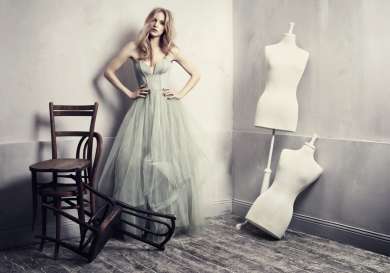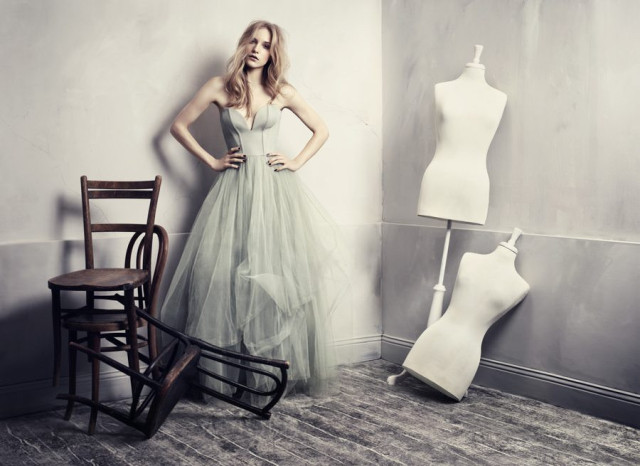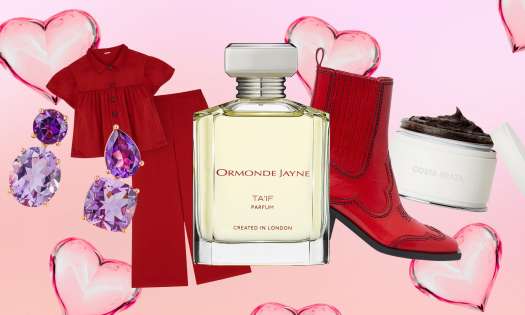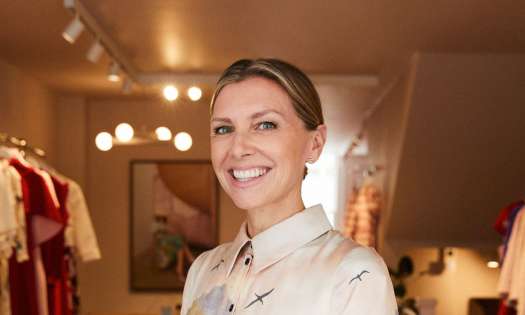Part of brands' reluctance can be attributed to cost: prices for ethical clothing (encompassing organic cotton, fair trade clothes and garments made from recycled material) can be as high as the Shard, meaning that they can’t easily be factored into a weekly retail recce in the same way that items from high street shops can.
Ethical clothes have also suffered from a severe image problem in the past. The idea usually conjures up mental images of hemp skirts and the like, which are less than appealing to many consumers, and it is no wonder that the luxury market has veered away from sustainability.
Fortunately thanks to the pressure being exerted by fashion-forward, environmentally aware millennials like actress Natalie Portman, companies are being forced to come up with more appealing and even stylish options, ensuring that Sybarites can pick up something pretty and know that our actions didn’t harm the environment or exploit workers in the developing world.
Take for example sports and outwear brand Timberland, which launched its Earthkeepers collection in 2009 using an SPG goal: Style. Performance. Green. Fast forward to 2016 and Timberland’s Earthkeepers collection - whereby rubber soles are made out of recycled rubber and recycled plastic bottles (PET or polyethylene terephthalate) bottles are used in linings, laces, uppers and even faux shearling - now makes up 75% of all Timberland footwear.
Similarly, Swedish high-street stalwart, H&M, has introduced its Conscious Collection in a bid to capture the hearts and wallets of eco-conscious millennials. Subsequently designs - which have already been worn on the red carpet by actresses Amanda Seyfried and Michelle Williams - are made out of recycled polyester, hemp, organic cotton, linen, and Tencel.
Despite being championed mainly by high-street brands, luxury fashion houses are slowly following in the path to ethical clothing, such as Stella McCartney. The strict vegetarian and supporter of PETA (People’s Ethical Treatment of Animals) has become synonymous with ethical fashion and never, ever uses fur and leather in her high-priced couture opting instead for organic Fairtrade products. The line ‘suitable for vegetarians’ is even written on the soles of Stella’s shoes.
Another designer devoted to producing fashion forward clothes that don’t exploit factory workers and farmers or wreak havoc on the environment is Katherine Hamnett. The entire collection by the original pioneer of ethical clothing is made from organic materials.
If you can’t think of anything worse than trawling the avenues and aisles of a mega shopping mall, yet still want to be both fashionable and kind to the environment, check out Edun, a socially conscious fashion site that’s the brainchild of Bono, his wife Ali Hewson and designer Rogan Gregory. “It’s about respect for the environment, respect for the person who made the clothes and respect for the person who’s going to buy them. It’s a simple idea,’ says Ali but, we’d like to add, an effective one.
Of course, you’re going to have to make room in your wardrobe for these new eco-labels, so why not invite family and friends around for a wardrobe swap? The so-called ‘switch and bitch’ trend has swept New York and the premise is disarmingly simple: everyone brings a few unwanted items they’d like to trade - be it Chanel, Burberry or Marc Jacobs. With a bit of luck, one person’s cast off will be another’s new favourite item, and everyone will leave happy, hopefully with a new outfit. At the end of the party, simply send the unclaimed clothing to a charity shop - in a recyclable cotton bag, of course.
Thanks to the socially conscious mindset of millennials, our rampant consumerism – if channelled correctly – could actually be part of the solution to environmental concerns rather than the problem. For arguably one of the easiest ways that we can build a better world is through our purchases and choices as consumers.
With a little thought, we can shop ourselves, as well as the planet, to a brighter future. Green is evidently en vogue – and fingers crossed - this is one fashion trend that’s here to stay…
For more information on how to shop ethically visit www.ethicalconsumer.org or www.responsibleshopper.org









